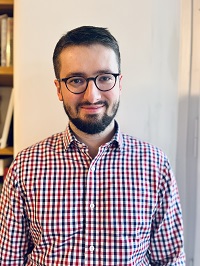Roundtable with Matej Slavik
The presented project aims to offer a new perspective on the development of constitutionalism in post-1989 East Central Europe (ECE), with regard to specific post-revolutionary constitutional realities of that era. It has been suggested rather recently, and with modest academic attention, that the constitutional and legalistic nature of the 1989 revolutions was far from given at the time, however natural it may seem to us today (Blokker, 2015). This research project aims to show that a similar claim could be made regarding the seemingly unshakable position of liberal constitutionalism which is considered to be a dominant design of post-revolutionary political systems in the region (Ginsburg, Huq, Versteeg, 2018) to which there was no viable alternative within relevant constitutional and political discourses. The underlying thesis of the project builds on the hypothesis pointing in the opposite direction – distinctive accounts of constitutionalism boosted by various expert groups and actors posed a significant challenge to the dominance of its liberal form.
The early development of constitutionalism in the post-1989 ECE will be reconstructed in the presented project through identification of such expert actors, together with the analysis of their contributions to a) constitutional scholarship, b) formal processes of constitution-making and institution-building. Particular attention will be paid to the role of western-based expert actors. Recent literature suggests that the current populist backlash in the ECE (primarily in Poland and Hungary, but also in Romania or Slovenia) stems from a supposedly humiliating process of “catching-up with” or “imitating the West” (Krastev, Holmes, 2020) which was propelled by western legal advisors (Hammerslev, 2011) and is now often rejected by populist leaders. There has been, however, scarce evidence to support the view that the policies designed to bring the ECE countries “back to Europe” were in fact imposed by the West upon these countries. To map out the main networks of expert actors active in the relevant constitutional debates and the supposedly robust transfers of ideas associated with their activities could offer a more substantiated insight into the problem. Going beyond the usual focus on the case law of apex courts, the presented approach should facilitate a deeper understanding of constitutionalism and its origins in the context of post-1989 ECE, which is crucial for tackling the crisis it finds itself in today.
Speaker bio
 Matěj Slavík is a PhD student at the University of Copenhagen and a research fellow at the Institute of Contemporary History of the Czech Academy of Sciences. He holds a master's degree in law from Charles University (2022). He is a member of the VolkswagenStiftung-sponsored project Towards Illiberal Constitutionalism in East Central Europe: Historical Analysis in Comparative and Transnational Perspectives. His research concerns the rise of liberal constitutionalism in post-1989 East Central Europe and a related process of constitutional transfers between "East and the West" during the 1990's.
Matěj Slavík is a PhD student at the University of Copenhagen and a research fellow at the Institute of Contemporary History of the Czech Academy of Sciences. He holds a master's degree in law from Charles University (2022). He is a member of the VolkswagenStiftung-sponsored project Towards Illiberal Constitutionalism in East Central Europe: Historical Analysis in Comparative and Transnational Perspectives. His research concerns the rise of liberal constitutionalism in post-1989 East Central Europe and a related process of constitutional transfers between "East and the West" during the 1990's.
Meeting ID: 613 0475 1000
Passcode: 182344
